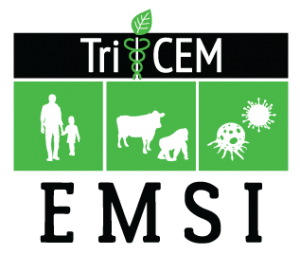EMSI brings together internationally recognized experts in evolutionary biology with students and health practitioners who want to apply these perspectives to cancer, infectious disease, evolution of microbial resistance, neurology, autoimmune disease, the microbiome, and more. Starting in 2025, EMSI is organized by TriCEM and 11 other evolutionary medicine center programs and centers (see below). Each year, the workshop focuses on a different topical area in evolutionary medicine. In 2025, the topic is, “Overcoming Resistance: Harnessing Evolution to control Cancer, Infectious Diseases, and Pests.”
We aim to (a) introduce core evolutionary perspectives to a wide range of topics in human and animal health and disease, (b) train scientists in computational methods used in evolutionary and ecological research, and (c) foster new collaborations across the evolutionary sciences, human and veterinary medicine, and public health. To achieve these goals, we couple hands-on participatory learning with networking and collaborative projects, with activities led by experts in evolutionary medicine. EMSI features lectures and exercises designed to instill an understanding of core concepts, followed by hands-on training in computational methods, including introductions to evolutionary analysis tools. Examples include topics such as phylogenetics, molecular evolution, and evolutionary epidemiology, with the specific topics tailored to the topical focus of EMSI for that year.
To facilitate networking and build collaborations for scientists and practitioners across disciplines, EMSI incorporates team-based learning projects throughout the week-long workshop. Traditionally, teams have formed to initiate short papers presenting evolutionary perspectives on specific diseases, with the goal of submission as “Clinical Briefs” to the journal Evolution, Medicine and Public Health. In 2025, additional project teams will form to investigate evolution-informed approaches to controlling cancer, infectious disease, and pests.

